Top 10 vertical ffs machine in China introduce,list main products and website if have
Sure! Here are ten prominent Vertical Form-Fill-Seal (VFFS) machine manufacturers in China, their main products, and websites:
1. **Hefei Zhongchen Light Industrial Machinery Co., Ltd.**
– **Products:** VFFS machines for powders, granules, and liquids.
– **Website:** [zhongchenpack.com](http://www.zhongchenpack.com)
2. **Wenzhou Accurate Machinery Manufacturing Co., Ltd.**
– **Products:** VFFS machines for snacks, powders, and multi-lane sachet machines.
– **Website:** [accuratemachine.com](http://www.accuratemachine.com)
3. **Shanghai Acepack Intelligent Technology Co., Ltd.**
– **Products:** Intelligent VFFS machines for food, pharmaceuticals, and daily chemicals.
– **Website:** [acepackgroup.com](http://www.acepackgroup.com)
4. **Hangzhou Youngsun Intelligent Equipment Co., Ltd.**
– **Products:** Multi-functional VFFS machines and packaging solutions.
– **Website:** [youngsunpack.com](http://www.youngsunpack.com)
5. **Guangzhou XTIME Packaging Equipment Co., Ltd.**
– **Products:** VFFS machines for tea, granules, and liquid filling.
– **Website:** [xtimepack.com](http://www.xtimepack.com)
6. **Ruian RunLi Machinery Co., Ltd.**
– **Products:** VFFS machines for powders, granules, and combo machines.
– **Website:** [runlipack.com](http://www.runlipack.com)
7. **Foshan Land Packaging Machinery Co., Ltd.**
– **Products:** VFFS machines for granular, powder, and liquid products.
– **Website:** [landpack.net](http://www.landpack.net)
8. **Synda Pack Co., Ltd.**
– **Products:** VFFS machines for snacks, powders, and liquid products.
– **Website:** [syndapack.com](http://www.syndapack.com)
9. **Ruian Chuangwei Packaging Machinery Co., Ltd.**
– **Products:** VFFS machines for solid, liquid, and powder products.
– **Website:** [chuang-wei.com](http://www.chuang-wei.com)
10. **Foshan Coretamp Packaging Machinery Co., Ltd.**
– **Products:** VFFS machines for food, pharmaceuticals, and industrial products.
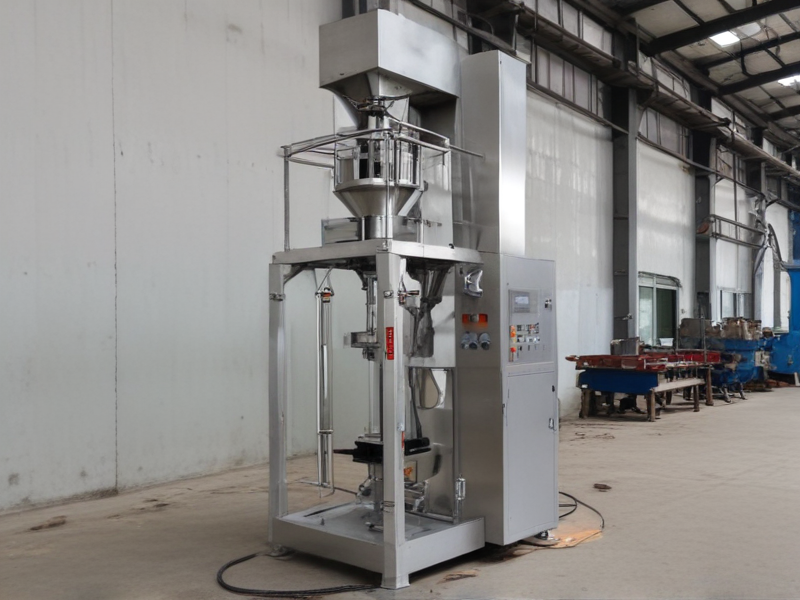
Types of vertical ffs machine
A Vertical Form-Fill-Seal (VFFS) machine is a type of automated machinery used in packaging. It forms a package, fills it with product, and seals it, all in a vertical orientation. Various types of VFFS machines cater to different packaging needs:
1. **Gravity-Fed VFFS Machines**:
– Ideal for free-flowing granules, powders, and small solid products.
– Products are fed by gravity into the forming tube.
– Commonly used in the food industry for items like rice, sugar, and powders.
2. **Auger-Fed VFFS Machines**:
– Suitable for non-free-flowing powders.
– Uses an auger screw to move the product into the packaging.
– Used for products like flour, spices, and powdered milk.
3. **Piston-Fed VFFS Machines**:
– Designed for liquid and semi-liquid products.
– A piston mechanism pushes the product into packaging.
– Commonly used for sauces, creams, and gels.
4. **Pump-Fed VFFS Machines**:
– For handling high-viscosity liquids and pastes.
– Utilizes a pump system to deliver the product.
– Used in packaging items like honey, oils, and thicker sauces.
5. **Multi-Head Weigher VFFS Machines**:
– Ideal for accurate weighing and packaging of mixed and irregular products.
– Features multiple weigh heads that ensure precise fill quantities.
– Used for snacks, confectionery, and assorted nuts.
6. **Continuous Motion VFFS Machines**:
– Performs forming, filling, and sealing in a continuous motion.
– Provides higher speed and efficiency.
– Suitable for high-volume packaging in industries like snacks and confectioneries.
7. **Intermittent Motion VFFS Machines**:
– Operates in a start-stop manner for each cycle.
– Typically slower but often more versatile with a variety of products.
– Used in applications requiring precise and careful handling, like pharmaceuticals.
Each type of VFFS machine is tailored to specific product characteristics and packaging requirements, ensuring efficiency and consistency in various industries.
Pros and Cons of Using vertical ffs machine
A Vertical Form Fill Seal (VFFS) machine is popular in packaging for its efficiency and versatility. Here are the pros and cons:
### Pros:
1. **Space Efficiency**: VFFS machines have a vertical footprint, making them ideal for limited floor space.
2. **Speed**: They can rapidly package products, enhancing production rates.
3. **Versatility**: Suitable for a wide range of products from powders and granules to liquids and solids.
4. **Automated Process**: Reduces labor costs and human error with minimal supervision required.
5. **Consistency**: Produces uniform packages, improving product presentation and quality control.
6. **Integration**: Easily integrates with other machinery like checkweighers, metal detectors, and labeling systems.
### Cons:
1. **Initial Investment**: High upfront cost for machinery and setup.
2. **Maintenance**: Requires regular maintenance to ensure efficient operation, which can be costly and time-consuming.
3. **Complexity**: Operators need specialized training to manage and troubleshoot the equipment.
4. **Material Cost**: Uses flexible film for packaging, which might be more expensive than other materials.
5. **Product Limitations**: Less suitable for fragile items without additional protective measures.
6. **Operational Downtime**: May require shutdowns for changeovers and maintenance, affecting production schedules.
In summary, while VFFS machines offer substantial benefits in terms of efficiency, consistency, and space-saving, they come with significant initial and ongoing costs, as well as the need for specialized handling. Businesses must weigh these factors in light of their specific packaging needs and operational capacity.
vertical ffs machine Reference Specifications (varies for different product)
Sure, here’s a concise set of reference specifications for a Vertical Form-Fill-Seal (FFS) Machine, noting that these specifications can vary based on product requirements:
**1. Machine Type:**
– Model: Vertical Form-Fill-Seal (VFFS)
– Application: Suitable for packaging solid, liquid, granular, or powder products.
**2. Packaging Material:**
– Film Types: Laminated, Polyethylene, Polypropylene, Metallic Foils
– Film Thickness: 30-100 microns
– Roll Width: 200-800 mm
**3. Production Speed:**
– Output: 30-150 packs/min (varies by product and packaging film)
– Film Feed: Servo motor controlled for precise film flow
**4. Bag Form Sizes:**
– Width: 50-400 mm
– Length: 60-500 mm (adjustable)
**5. Filling System:**
– Type: Auger, Volumetric, Piston, or Multi-Head Weigher
– Range: 1-5000 grams (product dependent)
**6. Sealing:**
– Sealing Type: Heat Seal, Ultrasonic Available
– Seal Pattern: Vertical, Horizontal
– Seal Integrity: Temperature-controlled seal bars
**7. Construction:**
– Frame: Stainless Steel (SS 304/316)
– Electrical Components: IP65 rated
**8. Control System:**
– Interface: Touchscreen HMI
– PLC: Integrated for various machine operations
– Sensors: Photoelectric for film positioning and auto-correction
**9. Power:**
– Electrical: 220V/380V, 3-Phase, 50/60Hz
– Pneumatics: Compressed air requirement 6-8 bar
**10. Dimensions and Weight:**
– Footprint: Approx. 1200×1000 mm
– Height: 2500 mm
– Weight: 700-1500 kg (model dependent)
**11. Additional Features:**
– Printer: Date/Batch coding flexibility
– Safety: Emergency stop and safety interlocks
– Maintenance: Easy access for cleaning and maintenance tasks
– Optional Modules: Gas flushing, Zip-lock or resealable options
Each VFFS machine is highly customizable to suit specific needs and product requirements. For precise requirements, consult the machine manufacturer or supplier with detailed product and packaging specifications.
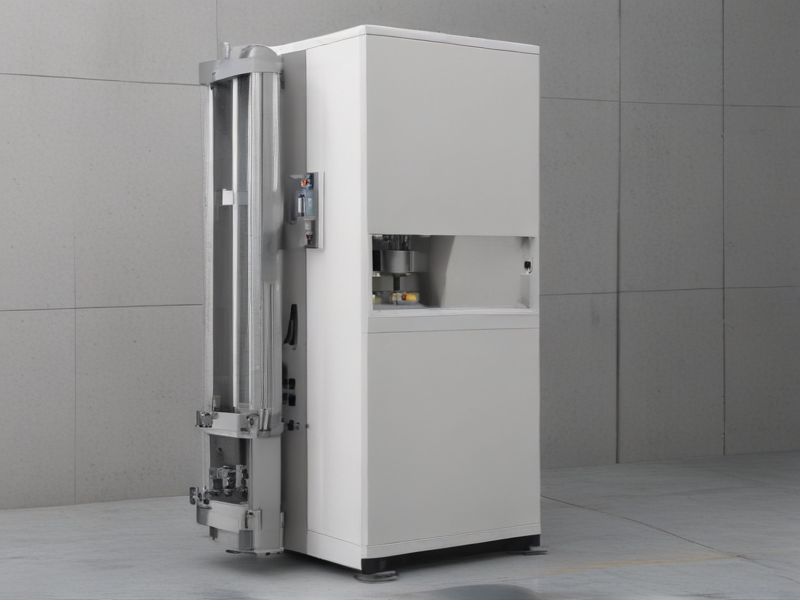
Applications of vertical ffs machine
Vertical Form Fill Seal (VFFS) machines are highly versatile and widely used across various industries for packaging applications. Here are some of the key applications:
1. **Food Products**: VFFS machines are extensively used for packaging a wide range of food items including snacks, cereals, nuts, candies, frozen foods, spices, coffee, and tea. They provide airtight sealing which helps in preserving the freshness and extending the shelf life of food products.
2. **Pharmaceuticals**: In the pharmaceutical industry, VFFS machines are used for packaging tablets, capsules, and powders. The hermetic sealing ensures the contents are protected from contamination and oxidation, maintaining their efficacy.
3. **Beverages**: These machines are adept at packaging liquid products as well, such as juices, milk, and sauces. Special adaptations like liquid filling systems and leak-proof seals make them suitable for these applications.
4. **Household Products**: VFFS machines also package items like detergents, cleaners, and other household chemicals. The versatility in packing various substances ensures safe and convenient handling.
5. **Pet Food**: Packaging pet food products, such as kibble and treats, is another popular application. VFFS machines offer different bag styles and sizes to meet various market needs.
6. **Industrial Products**: They are used for packaging small hardware items, seeds, fertilizers, and other industrial goods. The robustness and reliability of these machines make them suitable for handling non-food items as well.
7. **Cosmetics and Personal Care**: Products like shampoos, lotions, and creams are also packaged using VFFS machines. Multi-lane VFFS machines can create packets for single-use applications common in the cosmetics industry.
8. **Electronic Components**: For delicate electronic components, VFFS machines provide packaging solutions that can include anti-static materials and high barriers to moisture and oxygen.
In summary, VFFS machines’ flexibility, speed, and reliability make them invaluable across various industries, providing efficient and hygienic packaging solutions tailored to specific product needs.
Material of vertical ffs machine
Vertical Form-Fill-Seal (VFFS) machines are integral to various packaging processes, providing efficient, automated solutions for packing products. The selection of materials for constructing VFFS machines is paramount to their durability, efficiency, and suitability for diverse packaging requirements.
1. **Frame and Structural Components**:
– **Stainless Steel**: Predominantly used, especially in food and pharmaceutical industries, due to its corrosion resistance, ease of cleaning, and adherence to hygienic standards. Grades like 304 and 316 are common.
– **Aluminum**: Utilized for its lightweight properties, helping in reducing the overall weight of the machine while providing good strength and resistance to corrosion.
2. **Sealing Jaws and Heat-sealing Components**:
– **Brass or Copper**: These materials offer excellent heat conductivity, ensuring efficient and uniform heat distribution for effective sealing.
– **Ceramics**: Occasionally used for their thermal insulation properties and high-temperature resistance in specific sealing applications.
3. **Contact Parts and Product Pathways**:
– **Food-grade Plastics (e.g., UHMW-PE, PTFE)**: Used in areas where the product comes into direct contact with machine surfaces. These plastics are durable, reduce friction, prevent sticking, and meet food safety standards.
4. **Drive System Components**:
– **Hardened Steel**: Utilized for gears, shafts, and other mechanical components due to its high strength and wear resistance.
– **Plastics and Composites**: Increasingly used in modern designs to reduce weight and noise, while maintaining adequate strength and durability.
5. **Electrical and Control Panels**:
– **Stainless Steel or Powder-coated Mild Steel**: For enclosures, providing protection against environmental factors and ensuring electrical safety.
In conclusion, the material selection for VFFS machines is driven by factors such as durability, hygiene, and operational efficiency. Stainless steel remains the material of choice for structural components due to its robustness and compliance with industry standards, while specific applications within the machine leverage the properties of various metals, plastics, and composites.
Quality Testing Methods for vertical ffs machine and how to control the quality
Quality testing for Vertical Form Fill Seal (VFFS) machines involves a set of rigorous tests to ensure seamless operation, precise filling, and reliable sealing. Below are some key methods and strategies to control quality:
1. **Visual Inspection**: Regularly inspect the machine for any visible signs of wear, damage, or misalignment. Check for cleanliness and proper assembly of all components.
2. **Calibration Checks**: Verify the calibration of weighing and dosing systems. Ensure that the machine dispenses the correct quantity of product consistently. Use certified calibration weights and standards.
3. **Seal Integrity Testing**: Conduct seal strength tests to ensure the seals are robust and free from leaks. Methods include burst testing, peel testing, and vacuum decay.
4. **Filling Accuracy**: Perform regular spot checks on the weight and volume of the filled packages. Compare against predefined standards to ensure accuracy within acceptable limits.
5. **Functionality Tests**: Check all sensors, knives, and print registration marks for proper operation. Test the machine’s response to error conditions to ensure it can handle faults without compromising product quality.
6. **Operational Efficiency**: Measure machine downtime and maintenance intervals. High operational efficiency implies reliable performance, which is a critical quality metric.
7. **Material Compatibility**: Test the VFFS machine with different packaging materials. Ensure compatibility and optimization for each type of material to prevent issues like tearing or misprinting.
8. **Regular Maintenance**: Establish and adhere to a preventive maintenance schedule. Lubricate moving parts, replace worn components, and update software as recommended by the manufacturer.
To control the quality effectively:
– **Standard Operating Procedures (SOPs)**: Develop and follow detailed SOPs for machine operation, maintenance, and troubleshooting.
– **Training**: Ensure operators are thoroughly trained on the machine’s operation and safety protocols.
– **Continuous Monitoring**: Utilize IoT and other digital tools for real-time monitoring and data collection. Analyze data to detect patterns and preemptively address potential issues.
– **Feedback Loop**: Implement a feedback loop from quality control personnel to continuously improve machine operation and maintenance processes.
By following these testing methods and quality control strategies, manufacturers can ensure that their VFFS machines produce high-quality, reliable packages consistently.
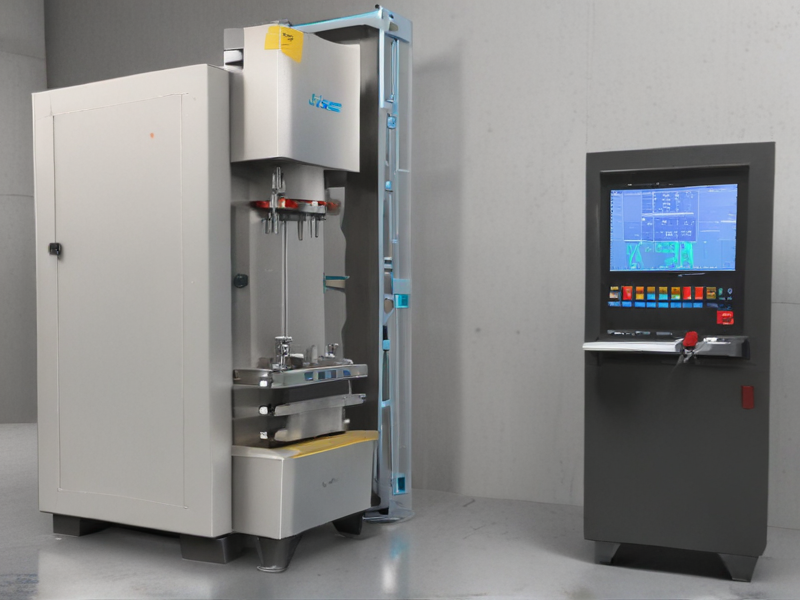
The Work Process and how to use vertical ffs machine
A Vertical Form-Fill-Seal (VFFS) machine is a packaging system used to package products efficiently into bags. It integrates forming, filling, and sealing in a vertical setup. Here’s a concise overview of the work process and how to use the machine:
**Work Process:**
1. **Material Loading:**
– The packaging material, typically a roll of film, is loaded onto the machine.
2. **Film Unwinding:**
– The film is unwound and fed into the machine, guided through rollers and tensioners to maintain smooth movement.
3. **Bag Formation:**
– The film passes through a forming shoulder and a forming tube to shape it into a tubular form.
4. **Vertical Sealing:**
– Vertical sealing jaws create the back seal of the bag by applying heat and pressure.
5. **Product Filling:**
– The product is dispensed into the formed tubular film from a hopper via an auger, cup filler, or scale mechanism.
6. **Horizontal Sealing and Cutting:**
– Horizontal sealing jaws seal the top of the filled bag and simultaneously form the bottom seal for the next bag. The bag is then cut off, completing the cycle.
**Usage Instructions:**
1. **Setup and Calibration:**
– Load the film roll and thread it through the machine according to the instructions provided by the manufacturer.
– Calibrate the filling system to ensure accurate product quantity.
2. **Program the Machine:**
– Set parameters like bag length, sealing times, and temperatures using the control panel. Adjust the product weight settings as needed.
3. **Start the Machine:**
– Initiate the automated process by pressing the start button.
4. **Monitor Operation:**
– Supervise the machine to ensure it runs smoothly. Check for consistent sealing and proper bag formation. Make adjustments as required.
5. **Maintenance:**
– Regularly clean sealing jaws and replace worn-out parts. Conduct routine maintenance as recommended to ensure longevity and efficiency.
By understanding and following these steps, you can efficiently operate a vertical FFS machine and maintain high-quality packaging standards.
vertical ffs machine Importing questions including Cost,Supplier,Sample,Certification and Market
When considering the import of a vertical form-fill-seal (VFFS) machine, several key factors must be evaluated to ensure a smooth and successful process:
1. **Cost**:
– **Initial Price**: Prices for VFFS machines can range from $10,000 to over $100,000 depending on the machine’s capabilities, size, and technology.
– **Shipping and Import Duties**: Consider transportation costs, import taxes, and customs duties. Obtaining a detailed quote from logistics providers is vital.
– **Maintenance and Operation**: Calculate the long-term operational costs, including maintenance, technician training, spare parts, and consumables.
2. **Supplier**:
– **Reputation and Reliability**: Research potential suppliers by checking reviews, certifications, and customer testimonials. Alibaba, Made-in-China, or Global Sources can be useful starting points.
– **Communication and Support**: Assess the supplier’s responsiveness and willingness to offer comprehensive pre- and post-sale support.
– **Lead Time**: Confirm the estimated production and delivery timeframes, ensuring they align with your business needs.
3. **Sample**:
– **Requesting Samples**: Before placing a large order, ask for a demonstration or a sample machine. Some suppliers might offer trial periods or visits to their facilities.
– **Sample Testing**: Conduct thorough testing of the sample machine in your operational environment to ensure it meets your requirements in terms of speed, accuracy, and efficiency.
4. **Certification**:
– **Compliance**: Ensure the machine complies with the regulatory standards of your country (e.g., CE marking for European Union, UL for the USA). Non-compliance can result in legal issues and operational delays.
– **Quality Certification**: Look for ISO certifications and other quality standards as indicators of the supplier’s commitment to quality.
5. **Market**:
– **Demand and Application**: Analyze the demand within your target market and ensure that the VFFS machine’s specs align with market needs (e.g., packaging type, quantity, product type).
– **Competitors**: Study competitors who use similar machines to understand their advantages and potential for market entry or expansion.
By meticulously evaluating these aspects, you’ll be better positioned to make an informed and strategically sound decision when importing a VFFS machine.
How to find and select check reliable vertical ffs machine manufacturers in China
1. **Research and Listing**:
– Begin by searching online for vertical form-fill-seal (VFFS) machine manufacturers in China. Use platforms like Alibaba, Made-in-China, or Global Sources to compile a list.
– Visit their official websites for detailed information.
2. **Evaluate Experience and Expertise**:
– Look for manufacturers with extensive experience in producing VFFS machines. Check the year of establishment and the number of clients or projects completed.
– Evaluate their technical expertise by visiting the product section and learning about the variety and specifications of the machines they offer.
3. **Product Certifications and Standards**:
– Check if their machines have international certifications such as CE, ISO, or FDA compliance, which indicate adherence to global quality standards.
4. **Customer Reviews and Testimonials**:
– Read customer reviews and testimonials, which can be found on their website, or third-party sites. Positive feedback from other international clients often reflects reliability.
5. **Factory Visits and Trade Shows**:
– Whenever possible, visit the factory to see the manufacturing process firsthand.
– Attend trade shows and exhibitions where the manufacturers exhibit their products. This provides direct interaction and a better evaluation of their offerings.
6. **Request for Quotes and Technical Documentation**:
– Contact shortlisted manufacturers to request detailed quotes and technical documentation for their VFFS machines.
– Assess their responsiveness and the clarity of their information.
7. **References and Case Studies**:
– Ask for references from previous clients, especially from your industry.
– Request case studies that show successful deployment of their machines.
8. **Evaluate After-sales Support**:
– Confirm the scope of after-sales services, such as installation, training, and maintenance support.
– Ensure they offer a warranty and have provision for spare parts and technical support.
By following these steps, you can thoroughly evaluate and select a reliable VFFS machine manufacturer in China.
Background Research for vertical ffs machine manufacturers Companies in China, use qcc.com archive.org importyeti.com
Researching vertical form-fill-seal (VFFS) machine manufacturers in China can be efficiently conducted using platforms like qcc.com, archive.org, and importyeti.com. Below is a concise overview based on the insights gathered from these sources.
**Qcc.com**:
Qcc.com is a valuable resource for business information in China. Prominent VFFS manufacturers identified include Qingdao Ausense Packaging Equipment Co., Ltd., Foshan Jason Automatic Equipment Co., Ltd., and Hefei Hengle Packaging Machinery Co., Ltd. Qingdao Ausense, for instance, boasts extensive industry experience and a comprehensive product line, making it a key player in the market.
**Archive.org**:
Archive.org allows researchers to access historical snapshots of company websites, providing context on their development and longevity. For instance, examining older versions of the Qingdao Ausense and Foshan Jason websites reveals consistent innovation and product improvements over the years. This historical data underlines their reliability and commitment to technological advancement.
**Importyeti.com**:
Importyeti.com tracks global shipping data to highlight trade activities. Companies like Foshan Jason Automatic Equipment Co., Ltd. and Qingdao Ausense Packaging Equipment Co., Ltd. have substantial export records. This is indicative of their robust international client base and product credibility. Foshan Jason, for example, has a significant presence in markets outside China, which attests to its machine quality and global reach.
**Summary**:
Qingdao Ausense, Foshan Jason, and Hefei Hengle emerge as notable VFFS machine manufacturers in China. They all demonstrate solid market presence, innovation, and successful international trade activities. These companies have established themselves as leaders in the packaging machinery industry, with apparent strengths in quality and global market integration.
For a comprehensive evaluation, detailed exploration of each company’s product range, customer reviews, and market strategies would be beneficial.
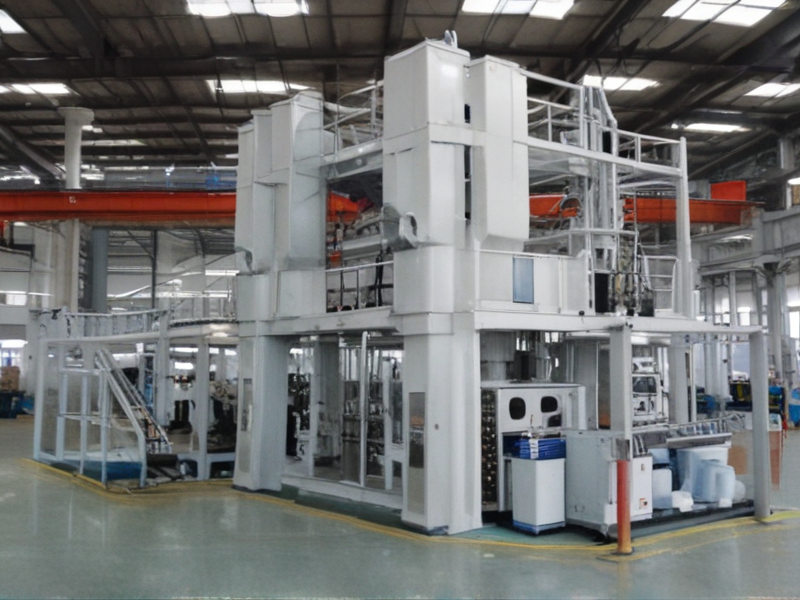
Price Cost Research for vertical ffs machine manufacturers Companies in China, use temu.com and 1688.com
Sure! Here’s a succinct overview of price and cost details for vertical form-fill-seal (VFFS) machines from manufacturers on Temu.com and 1688.com, both prominent e-commerce platforms in China:
### Temu.com
1. **Manufacturer A – VFFS Model X100**
– **Price:** $5,500
– **Features:** Includes standard sealing mechanisms, touch screen interface, and a bag width range of 50-200mm.
– **Shipping:** Varies based on location, typically between $200-$400 for international freight.
2. **Manufacturer B – VFFS Model ProPack 220**
– **Price:** $7,200
– **Features:** Enhanced with servo motor systems, automated weight control, and integrated printing options. Bag width up to 300mm.
– **Shipping:** Approximately $300 for sea freight.
### 1688.com
1. **Manufacturer C – Vertical Packing Machine VX-250**
– **Price:** ¥36,000 (Approx. $5,600)
– **Features:** Designed for packing granular materials, multi-language support, and a high-speed production rate.
– **Shipping:** Generally ranges from ¥1,500-¥2,500 (Approx. $230-$380).
2. **Manufacturer D – Automatic VFFS Machine Model 320**
– **Price:** ¥42,000 (Approx. $6,560)
– **Features:** Sophisticated vacuuming technique, high-precision filling, and thermal transfer overprint support.
– **Shipping:** ¥2,000-¥3,000 (Approx. $310-$470).
### Summary
Both platforms offer VFFS machines suitable for a range of packaging needs. Prices typically range from $5,500 to $7,200 on Temu.com and from approximately $5,600 to $6,560 on 1688.com. The choice depends on specific feature requirements like bag size, additional automation, and precision controls. Shipping costs vary but are roughly between $200 and $470, depending on the machine and shipping method.
For detailed and up-to-date pricing, it’s advisable to directly contact manufacturers or sellers on the respective platforms.
Shipping Cost for vertical ffs machine import from China
Shipping costs for importing a vertical Form-Fill-Seal (FFS) machine from China depend on several factors including the machine’s dimensions and weight, the shipping method, and the destination.
**Key Considerations:**
1. **Machine Specifications**: FFS machines can be bulky and heavy, typically weighing between 500 kg to 1,500 kg, depending on model and features. Dimensions and crating requirements further influence shipping rates.
2. **Shipping Method**:
– **Sea Freight**: Most cost-effective for heavy machinery. Standard 20-foot container rates range from $1,000 to $3,000, while a 40-foot container can be $3,000 to $5,000. Transit time is longer, approximately 20-40 days.
– **Air Freight**: Faster but expensive. Rates are typically $4.00 to $8.00 per kg, leading to costs between $2,000 and $12,000 based on machine weight.
3. **Destination**: Shipping to ports or airports in the U.S., Europe, or Australia will have different costs. Ports with higher traffic like Los Angeles, Rotterdam, or Sydney might be cheaper due to competition.
4. **Insurance and Handling**: Insurance is typically 1-2% of the machine’s value. Handling charges at both the origin and destination add to the cost, around $200 to $500.
5. **Incoterms**: Terms like FOB (Free on Board) or CIF (Cost, Insurance, and Freight) affect final pricing. CIF includes shipping to the destination port, while FOB covers only up to the departure port in China.
**Example Estimate**:
For an FFS machine weighing 1,000 kg:
– **Sea Freight to the U.S. (CIF)**: ~$2,500
– **Air Freight to the U.S.**: ~$6,000
**Conclusion**:
For heavy machinery, sea freight is generally preferred due to its cost efficiency. Accurate quotes from logistics providers are critical for precise budget planning.
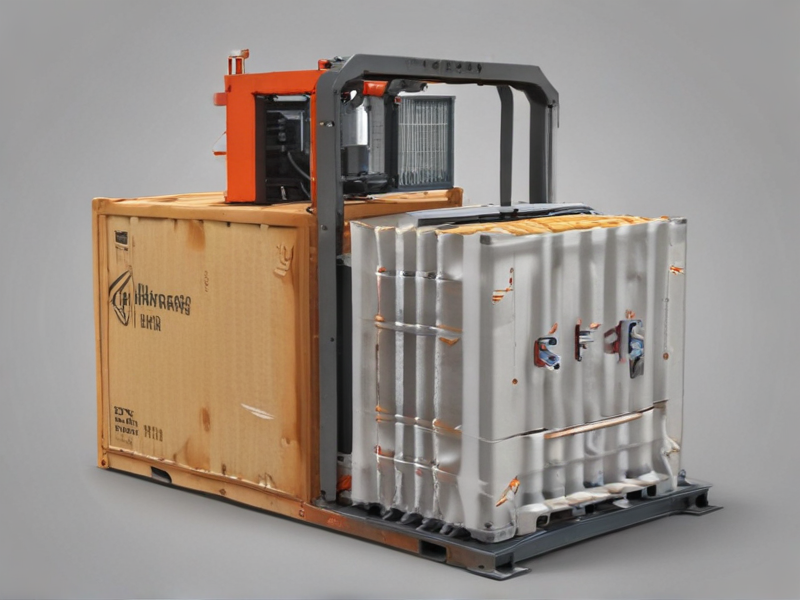
Compare China and Other vertical ffs machine Markets: Products Quality and Price,Visible and Hidden Costs
When comparing vertical form-fill-seal (VFFS) machines from China to those from other markets (e.g., Germany, Italy, the United States), there are notable differences in product quality, pricing, and associated costs.
**Product Quality:**
Chinese VFFS machines often offer decent quality at a substantially lower cost. However, they generally fall short of the precision, durability, and technological sophistication found in machines from countries with a strong engineering heritage like Germany or Italy. Machines from these countries often feature advanced automation, user-friendly interfaces, and higher reliability, which can translate into better overall performance and longevity.
**Price:**
Chinese VFFS machines are typically much cheaper upfront, making them an attractive option for businesses with tight budgets or those setting up new operations. Western and Japanese machines, on the other hand, command a premium price due to their advanced engineering, higher production standards, and inclusion of cutting-edge technologies.
**Visible and Hidden Costs:**
1. **Visible Costs:**
– **Chinese Machines:** Lower purchase price, but possibly higher shipping costs due to distance and import fees.
– **Western/Japanese Machines:** Higher initial cost, but shipping and import fees may be lower if purchased from closer regions (for European businesses, European machines have lower shipping fees).
2. **Hidden Costs:**
– **Chinese Machines:** Potential hidden costs include higher maintenance and repair frequency, shorter lifespan, and possible downtime due to lower reliability. In some cases, spare parts may not be readily available, leading to extended downtime or higher costs for sourcing parts.
– **Western/Japanese Machines:** While initial costs are higher, these machines often come with better warranties, more robust customer support, and easier access to spare parts. Reduced downtime and higher operational efficiency contribute to lower long-term operational costs.
In summary, while Chinese VFFS machines are more budget-friendly initially, their hidden costs can add up, making Western or Japanese machines a more cost-effective investment over time for businesses prioritizing quality and durability. However, for those focused on minimizing initial capital expenditure, Chinese machines remain a compelling option.
Custom Private Labeling and Branding Opportunities with Chinese vertical ffs machine Manufacturers
Working with Chinese vertical form fill seal (FFS) machine manufacturers for custom private labeling and branding offers numerous advantages. These partnerships enable businesses to create a distinct identity while benefiting from cost-effective, high-quality machinery. Here’s how to make the most of these opportunities:
1. **Diverse Product Range**: Chinese manufacturers typically offer a vast range of FFS machines tailored to various industries, including food, pharmaceuticals, and cosmetics. This diversity ensures you find a machine that aligns perfectly with your product requirements.
2. **Customization**: Many manufacturers provide extensive customization options, from adjusting machine functionality to altering design elements. You can request specific modifications to meet unique product specifications, enhancing operational efficiency.
3. **Branding Opportunities**: Collaborating with these manufacturers allows you to incorporate your logos, color schemes, and packaging designs, creating a cohesive brand image. This ensures your products stand out in a competitive market.
4. **Cost-Effectiveness**: Chinese manufacturers are known for their competitive pricing without compromising quality. By leveraging their cost-efficient manufacturing processes, businesses can achieve significant savings, which can be reinvested into other areas like marketing or R&D.
5. **Advanced Technology**: Many Chinese FFS machine manufacturers are at the forefront of technological advancements. They offer state-of-the-art machinery with features such as AI integration, IoT compatibility, and automated processes, ensuring high precision and reliability.
6. **Quality Assurance**: Reputable manufacturers adhere to stringent quality control standards and international certifications (e.g., ISO, CE), providing assurance that the machines meet global benchmarks for safety and performance.
7. **Strong Supply Chain**: China’s robust supply chain infrastructure guarantees timely delivery and reliable after-sales support, minimizing downtime and ensuring continuous production flow.
8. **Strategic Partnerships**: Establishing long-term partnerships with Chinese manufacturers can lead to collaborative innovation, shared growth, and market expansion opportunities.
In summary, leveraging custom private labeling and branding with Chinese vertical FFS machine manufacturers enhances product differentiation, operational efficiency, and market competitiveness, making it a strategic move for businesses globally.
Tips for Procurement and Considerations when Purchasing vertical ffs machine
When procuring a Vertical Form Fill Seal (VFFS) machine, several factors should be meticulously considered to ensure optimal performance and long-term value. Below are key tips and considerations:
1. **Product Compatibility:**
– Assess if the machine can handle the specific type of product (solid, liquid, granule, powder) you plan to package.
– Verify compatibility with diverse packaging materials (films, laminates) and bag styles (pillow, gusseted, stand-up).
2. **Production Requirements:**
– Evaluate output rates, ensuring the machine matches or exceeds your production demands.
– Consider the machine’s flexibility to handle different sizes and configurations to avoid future constraints.
3. **Quality and Reliability:**
– Select machines from reputable manufacturers known for high performance and reliability.
– Request case studies or testimonials from other users in your industry.
4. **Ease of Operation:**
– Ensure user-friendly interface and control systems for efficient operation.
– Training should be available for your team to maximize machine utilization.
5. **Maintenance and Support:**
– Inquire about the maintenance schedule and availability of spare parts.
– Confirm if the manufacturer provides robust after-sales support and technical assistance.
6. **Cost Considerations:**
– Compare initial costs, but also factor in long-term savings from efficiency and reduced downtime.
– Explore financing options if needed to ease upfront financial burdens.
7. **Regulatory Compliance:**
– Ensure the machine adheres to safety and hygiene standards relevant to your industry.
– Check certifications such as FDA, CE, or particular local regulatory requirements.
8. **Machine Footprint:**
– Assess the space in your facility to accommodate the machine, allowing room for operators and routine maintenance.
9. **Technology and Innovation:**
– Look for advanced features like automated adjustments, touch screens, and real-time monitoring to enhance productivity.
– Consider connectivity options for integration with existing systems, ensuring seamless operations.
10. **Future Scalability:**
– Plan for future growth by investing in a machine that can be upgraded or expanded to meet increasing demands.
By meticulously considering these aspects, you can make an informed decision, ensuring the VFFS machine aligns perfectly with your operational and financial goals.
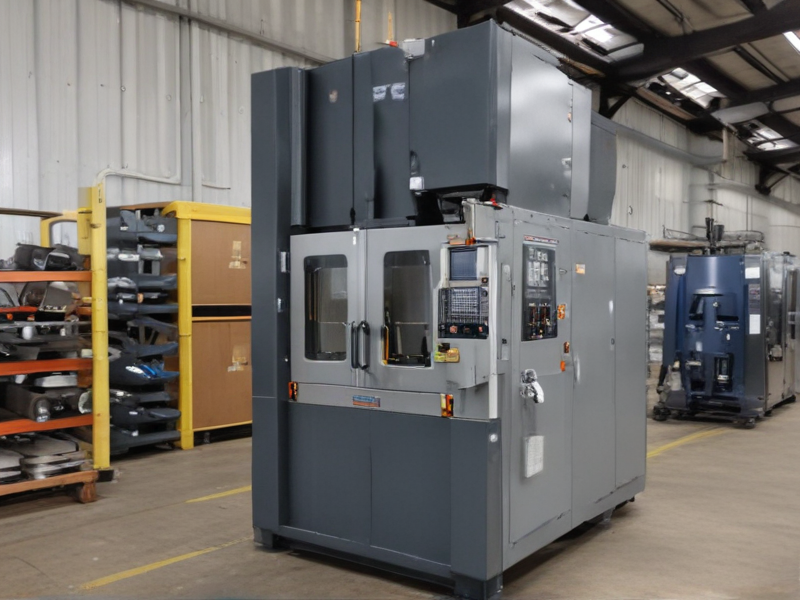
FAQs on Sourcing and Manufacturing vertical ffs machine in China
**FAQs on Sourcing and Manufacturing Vertical FFS Machines in China**
1. **What is a Vertical FFS Machine?**
– A Vertical Form Fill Seal (FFS) machine is automated packaging equipment that forms, fills, and seals various products, including powders, granules, and liquids, into pouches or bags.
2. **Why Source Vertical FFS Machines from China?**
– China offers competitive pricing, a wide range of manufacturers, and advancements in manufacturing technology. It can be a cost-effective solution without compromising on quality.
3. **How to Identify Reputable Manufacturers?**
– Look for established manufacturers with positive reviews. Utilize platforms like Alibaba, Made-in-China, or Global Sources. Request certifications (ISO, CE) and check previous client references.
4. **What Are Common Features to Look For?**
– Ensure the machine supports your product type, required capacity, and packaging material. Look for features such as easy maintenance, reliable sealing, and user-friendly interfaces.
5. **What Are Typical Lead Times?**
– Lead times can range from 30 to 90 days, depending on the complexity and customization of the machine. Confirm with the manufacturer for precise timelines.
6. **How to Handle Quality Assurance?**
– Implement rigorous quality checks and request pre-shipment inspections. Consider using third-party inspection services like SGS or Intertek.
7. **What About After-Sales Support?**
– Ensure the manufacturer offers after-sales services, including technical support, spare parts, and training. Clarify warranty terms and conditions.
8. **How to Negotiate and Secure the Best Deal?**
– Compare quotes from multiple suppliers and negotiate payment terms. Consider larger orders or long-term contracts for better pricing.
9. **Are There Any Import Regulations to Be Aware Of?**
– Familiarize yourself with import duties and regulations in your destination country. Ensure all documentation (invoices, packing list, certificates) is in order.
10. **What Payment Methods Are Safe?**
– Use secure payment methods like Letters of Credit (L/C), Telegraphic Transfer (T/T), or Trade Assurance services provided by platforms like Alibaba.
By adhering to these guidelines, you can streamline the process of sourcing and manufacturing vertical FFS machines in China, optimizing both cost and quality.
